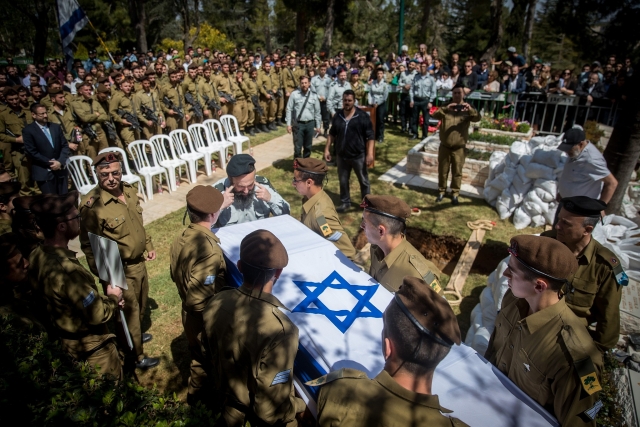As the ninth day of the war in Israel dawns, the Israel Defense Forces (IDF) have issued instructions to residents in Gaza, urging them to head south to the Rafah area. This move comes in preparation for what officials are calling a significant ground operation in the Gaza Strip, involving tens of thousands of troops. However, it's not without its challenges, as both Hamas and Egypt have attempted to hinder residents from following these evacuation orders, and Egypt has even sealed the Rafah border crossing. Meanwhile, Israel's northern borders remain on edge.
IDF spokesman Brigadier General Daniel Hagari has provided updates on the military's recent actions. He revealed that between Saturday and Sunday, the IDF launched attacks on 100 targets in Zeyton and Jabalia. These locations serve as military headquarters for the Islamic Jihad and house facilities of Hamas's security mechanisms. Hagari stated, "The most recent confrontation with terrorists occurred yesterday afternoon in the vicinity of the Gaza Strip, and the last rocket was fired from the Strip on Saturday evening."
עם הלוחמים שלנו בעוטף עזה, בקו החזית. כולנו מוכנים.
— Benjamin Netanyahu - בנימין נתניהו (@netanyahu) October 14, 2023
(צילום: אבי אוחיון, לע״מ) pic.twitter.com/TiGzHcWhPK
In response to the escalating situation, hundreds of thousands of Gazans have already heeded the IDF's call to move southward. In the northern sector, Hagari emphasized the military's state of high alert and vigilance along the entire border. He reported, "Last night, two Grad missiles launched from Syria landed in open areas in the Golan Heights. In response, we targeted the launch site. In Lebanon, we identified two suspicious targets that activated alarms, which ultimately turned out to be false alarms."
As the IDF gears up for a potentially significant incursion into the Gaza Strip, with tens of thousands of soldiers involved, key questions loom. The New York Times reported on Saturday evening that the goals of this operation remain unclear. It's uncertain whether Israel intends to occupy the Strip or not, and if not, what the plan is for Gaza after the ground operation concludes and Hamas is stripped of its power.
The Iranian delegation to the United Nations has voiced concerns about the Israeli attack on Gaza, warning that the situation could "spiral out of control" and have far-reaching consequences. Iranian representatives went on to assert that "the responsibility for Israeli war crimes rests with the United Nations and its Security Council."
צה"ל ממשיך לתקוף מטרות ברחבי רצועת עזה: חוסלו מחבלים שזוהו יוצאים מפיר מנהרה בשטח עזה
— צבא ההגנה לישראל (@idfonline) October 14, 2023
צה"ל המשיך לאורך שעות היום לתקוף בעוצמה מטרות צבאיות של ארגון הטרור חמאס, בדגש על השכונות ג'בליה, זייתון, אל-פורקן ובית חאנון>> pic.twitter.com/oTqF5TwJWW
The IDF has clarified that there is no specific timetable for rocket launches from Gaza, and the recent relative silence does not necessarily indicate that Hamas's ability to launch missiles into Israeli territory has been completely neutralized. Instead, it's possible that there's a temporary pause in launches for organizational purposes. However, just yesterday evening, an extensive barrage of rockets was launched towards central Israel and southern regions, including Ashdod, Ashkelon, and the Gaza Strip area.
The IDF remains in a state of preparedness for the ongoing and potentially expanding conflict, encompassing operations in the air, at sea, and on land. Notably, during recent operations by the Shin Bet and the IDF, Bilal Al-Kabri, a senior commander in Hamas's "Nochba" commando unit, was killed. He was responsible for orchestrating the terrorists' incursion into Kibbutz Nirim and the subsequent tragic events that unfolded there.
דיפלומטים בעזה בורחים ומשאירים מאחור את האנשים העניים. הסרטון תועד לאחר שישראל נתנה לחברי האו"ם ולזרים 24 שעות לעזוב את עזה pic.twitter.com/tVtfXfy1ul
— כל החדשות בזמן אמת 🟢 (@Saher95755738) October 14, 2023
As of Sunday morning, the toll of the conflict is deeply felt, with 286 bereaved families of IDF fallen soldiers being informed of the loss of their loved ones. Additionally, the IDF has notified 126 families of soldiers and civilians who were kidnapped to the Gaza Strip by Hamas terrorists. Entire units within the IDF are dedicated to gathering information related to these abductees, and the military has called upon the public to continue sharing any pertinent information that could aid in locating and rescuing those who have been taken captive.


